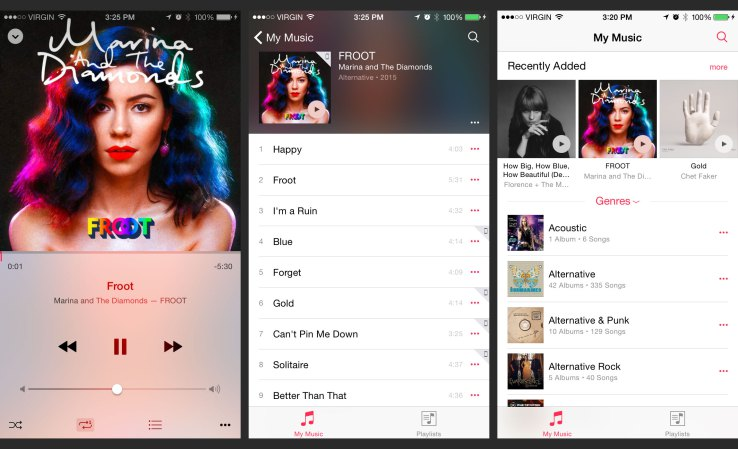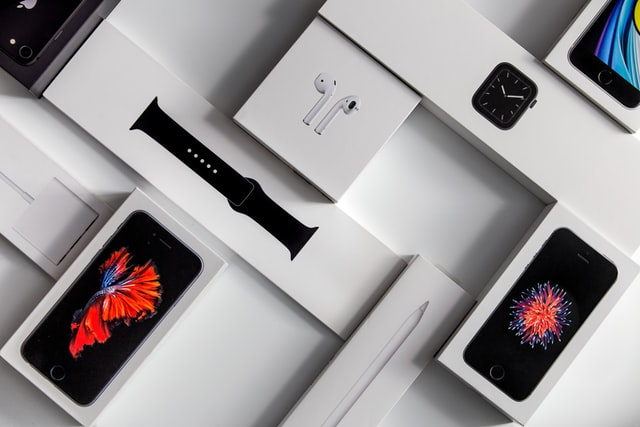
The iOS app music industry has revolutionized the way musicians create and perform their art, making it possible to harness powerful music tools directly from their iPhones, iPods, or iPads. Over the past few years, this transformation has allowed countless artists to access music recording and performance technology that was once reserved for those with expensive studio setups. With features like MIDI connectivity and specialized iOS music apps, musicians can connect their gear seamlessly and explore their creative potential like never before. Furthermore, innovative solutions such as guitar recording apps are enabling guitarists to capture their sound without breaking the bank. In essence, the iOS app music landscape has dramatically altered the music industry, empowering artists with tools that enhance their creative process and deliver stunning performances.
The realm of digital music applications on iOS devices has ushered in a new era for artists and performers alike. This burgeoning sector of app-based music production has significantly influenced the evolution of the music business, providing unexpected opportunities for both amateur and professional musicians. By utilizing innovative software solutions, including MIDI-enabled applications and user-friendly recording tools, artists are redefining their creative expressions. Enhanced music performance technologies allow for flexibility and efficiency in the studio and on stage. As musicians continue to adapt to these advancements, the landscape of music creation and consumption will undoubtedly undergo further changes, shaping the future of the industry.
How iOS Apps are Redefining the Music Industry
The rise of iOS apps has revolutionized the music industry, transforming how musicians create, record, and share their work. With apps available for everything from composition to recording and live performance, musicians now have unprecedented access to tools that were once only available in professional studios. This shift has democratized music creation, allowing independent artists to produce quality sound without the financial burden of traditional recording methods.
As iOS apps continue to evolve, they incorporate features that cater to various aspects of music production. Musicians can now use apps for MIDI connectivity, enabling them to connect their iPhone or iPad to keyboards, synthesizers, and other MIDI devices seamlessly. This technology not only broadens creative possibilities but also enhances live performances, allowing artists to use their mobile devices as powerful instruments.
The Role of MIDI Connectivity in Music Creation
MIDI connectivity has significantly changed the landscape of music production with iOS apps. By allowing users to connect a range of MIDI peripherals, musicians can send and receive data between various devices, enabling them to layer sounds, control virtual instruments, and enhance their compositions with ease. This advancement makes it easier for musicians to experiment with different sounds and styles, fostering creativity and innovation.
Applications that support MIDI functionality have become essential for modern music creators. They not only streamline the recording process but also enable intricate setups for live performances. With the ability to use their iOS devices as both a computer and a controller, artists can deliver rich musical experiences that were once complicated and expensive to orchestrate.
The Emergence of Guitar Recording Apps
Guitar recording apps have gained popularity due to the convenience they offer to musicians. With affordable options, such as ION’s Guitar Apprentice, iOS users can access high-quality recording features without needing expensive equipment. These apps simplify the recording process, allowing guitarists to plug in, record, and edit their tracks all within one platform.
The user-friendly interface of guitar recording apps empowers musicians of all skill levels to produce professional-sounding recordings. As the app ecosystem continues to expand, guitarists are discovering new and exciting ways to engage with their instruments, pushing the boundaries of what’s possible in music production.
Innovations in Music Performance Technology
The transformation of the music industry is heavily influenced by advances in music performance technology. iOS apps are at the forefront of this change, introducing innovative tools that enhance live performances for both musicians and audiences. From looping capabilities to effects processors, these apps have changed how music is performed, making it more interactive and engaging.
Additionally, the integration of technology in performances allows for a unique approach to engaging audiences. Apps that facilitate real-time editing and manipulation of sound create an immersive experience, drawing listeners closer to the music. Consequently, performers can use their iOS devices to provide a distinct soundscape that resonates with their fans, setting them apart in a crowded musical landscape.
Independent Musicians and The iOS App Revolution
Independent musicians have turned to iOS apps as their primary tools for music creation, bridging the gap between home studios and professional-grade production. With low entry costs and a vast array of features, these applications empower artists to take control of their artistic vision without the confines of record labels or major studio requirements.
This surge in independent music production has led to a flourishing culture of creativity, where artists can experiment and innovate freely. By utilizing iOS music apps, musicians can distribute their work digitally and reach global audiences, further emphasizing the importance of technology in today’s music industry.
The Influence of iOS Music Apps on Traditional Recording Practices
The introduction of iOS music apps has started to reshape traditional recording practices, as musicians now seek out more versatile and mobile solutions. With the advancements in technology, budding artists can create high-quality music without relying solely on the traditional recording studio model. This shift not only reduces costs but also empowers artists to follow their creative instincts.
Many established artists are also incorporating these modern tools into their workflow, demonstrating that iOS apps can complement traditional recording techniques. This blend of old and new approaches is creating a rich tapestry in the current music landscape, highlighting the ongoing evolution of the music industry through technology.
Trends in Music Production Enhanced by Technology
Technology has become a cornerstone in driving trends within the music production landscape, as iOS apps emerge at the forefront of this transformation. Musicians are increasingly gravitating towards mobile solutions that offer the same functionality as traditional equipment, but with added flexibility and portability. This trend encourages collaboration, as artists can work together in real-time, regardless of their physical locations.
Moreover, as new technologies emerge, they inspire fresh trends in genres and music styles. For instance, the increase in low-cost recording applications has led to the rise of new music genres that heavily rely on digital manipulation and sampling. The ease of access to creative tools means more artists can break into diverse musical arenas, resulting in innovative soundscapes that challenge traditional genre boundaries.
Harnessing iOS Apps for Music Distribution
The evolution of music distribution has closely followed the rise of iOS apps, allowing artists to share their work at unprecedented levels. Platforms integrated within these applications offer musicians the chance to distribute their music straight from their mobile devices, making it easier than ever to reach potential fans. This direct-to-consumer approach enables artists to build their brand and cultivate a loyal following.
Using iOS apps for music distribution has revolutionized how music is marketed and consumed. Social media integration allows musicians to promote their work instantly, leveraging their online presence to connect with listeners in real-time. Consequently, the barriers to entry for independent artists have significantly lowered, fostering a more inclusive music industry landscape.
Future of the Music Industry: Predictions on iOS App Development
The future of the music industry is poised for continued transformation with further advancements in iOS app development. As technology progresses, we can expect enhanced features that resonate with the evolving needs of musicians. This may include artificial intelligence-led composing tools, immersive sound experiences through augmented reality, and even deeper integration of hardware with software.
Moreover, as the demand for versatile music solutions grows, the competition among app developers is likely to intensify. This competition will drive innovation, resulting in even more sophisticated tools that streamline the music creation and performance processes. As we look ahead, it is clear that iOS music apps will play a pivotal role in shaping the future of music, offering limitless possibilities for artists across genres.
Frequently Asked Questions
How has the iOS app ecosystem transformed the music industry?
The iOS app ecosystem has revolutionized the music industry by enabling musicians to create, record, and perform music using their iPhones, iPods, and iPads. With a wide range of iOS music apps available, artists can now easily access powerful tools and features that were previously limited to expensive studio equipment.
What are some popular iOS music apps for musicians?
Some popular iOS music apps that have transformed the music industry include GarageBand for music creation, AmpliTube for guitarists, and Logic Pro for advanced production. These applications allow musicians to perform and record high-quality music directly from their iOS devices.
What is MIDI connectivity and why is it important for the iOS music industry?
MIDI connectivity allows iOS devices to interact with electronic musical instruments and software, enabling seamless integration for recording and performing music. This connectivity has been crucial for transforming the iOS music industry by providing musicians with the ability to control multiple devices and software from a single interface.
How can guitar recording apps enhance a musician’s performance?
Guitar recording apps, such as AmpliTube and Guitar Rig, enhance a musician’s performance by providing various effects, amp simulations, and recording capabilities directly on iOS devices. These apps allow guitarists to experiment with sounds and record high-quality tracks without the need for extensive studio setups.
What role does music performance tech play in the iOS music industry?
Music performance tech is essential in the iOS music industry as it enables musicians to leverage mobile technology for live performances and composition. With advancements like MIDI connectivity and intuitive music apps, artists can enhance their live shows and studio work with ease and mobility.
What advantages do iOS music apps offer to independent musicians?
iOS music apps offer several advantages to independent musicians, including affordability, accessibility, and the ability to produce high-quality content without the need for traditional studio resources. This democratization of music tools empowers artists to take control of their creative process.
How can I start using iOS music apps for music production?
To start using iOS music apps for music production, simply download a few essential apps like GarageBand or others tailored to your style. Explore their features, connect MIDI instruments if needed, and start creating music using your iPhone, iPod, or iPad.
What is the significance of ION’s Guitar Apprentice in the iOS music industry?
ION’s Guitar Apprentice is significant in the iOS music industry as it provides an innovative way for guitarists to learn and record music without needing complex MIDI setups. Priced at just $99, it showcases how affordable technology is reshaping music performance for musicians.
| Key Point | Description |
|---|---|
| Transformation of the Music Industry | The iOS app ecosystem has significantly changed how musicians operate. |
| Capabilities with iPhone/iPod/iPad | Most tasks necessary for a musician can be accomplished using an iOS device. |
| MIDI Spec Implementation | The introduction of core MIDI has enhanced connectivity options for music creation. |
| Impact on Music Performance | iOS devices, like the ION Guitar Apprentice, have changed the way musicians perform live. |
| Affordable Solutions | New tools and apps available at low costs (e.g., Guitar Apprentice at $99) make music creation accessible. |
Summary
The iOS app music industry has revolutionized the way musicians create, record, and perform music. With the emergence of various applications and devices that leverage iOS, musicians can now achieve high-quality productions without the traditional barriers of cost and complexity. The integration of MIDI capabilities further allows for innovative performance techniques, revealing endless possibilities for creativity in the evolving landscape of music technology.



